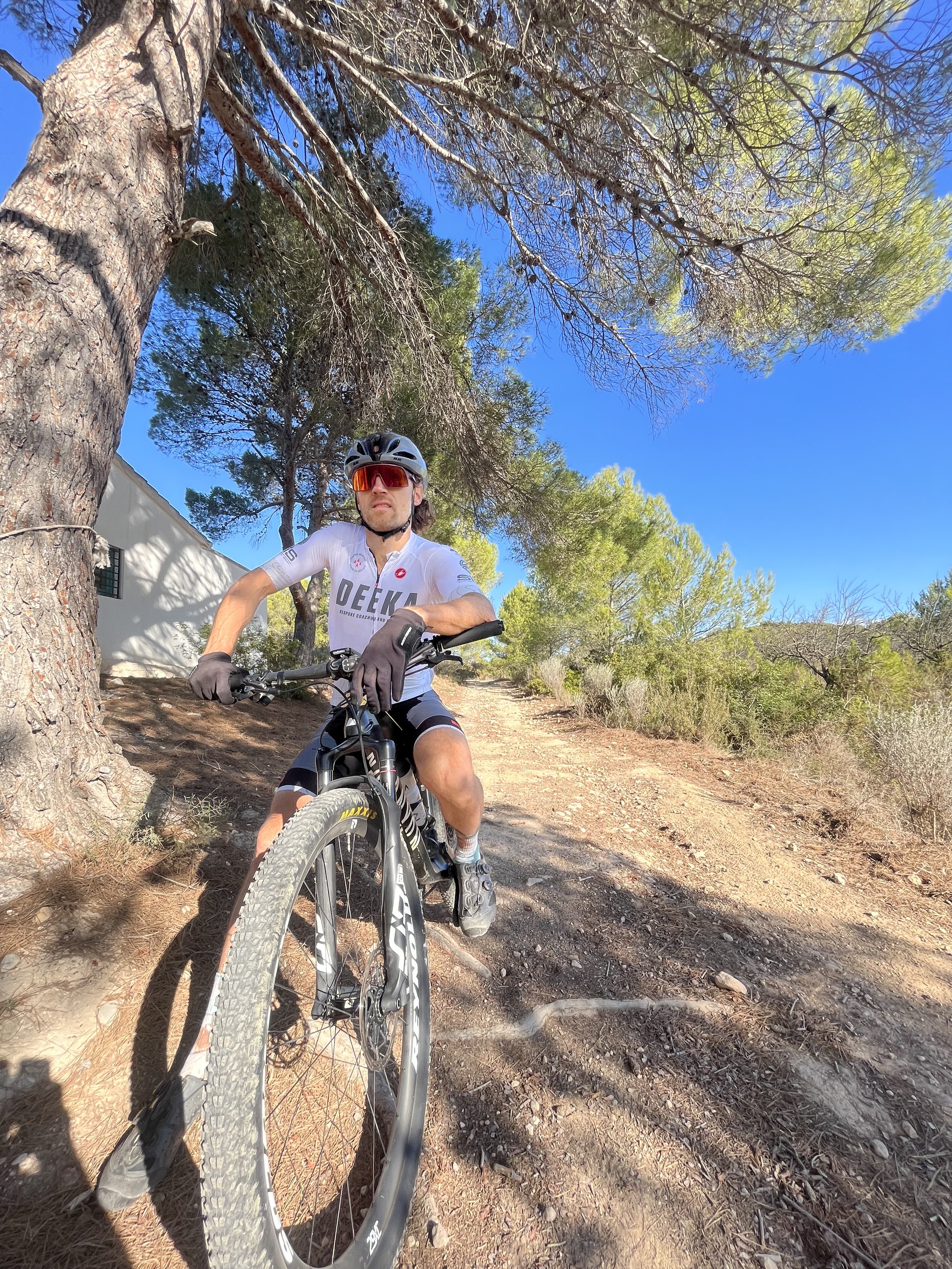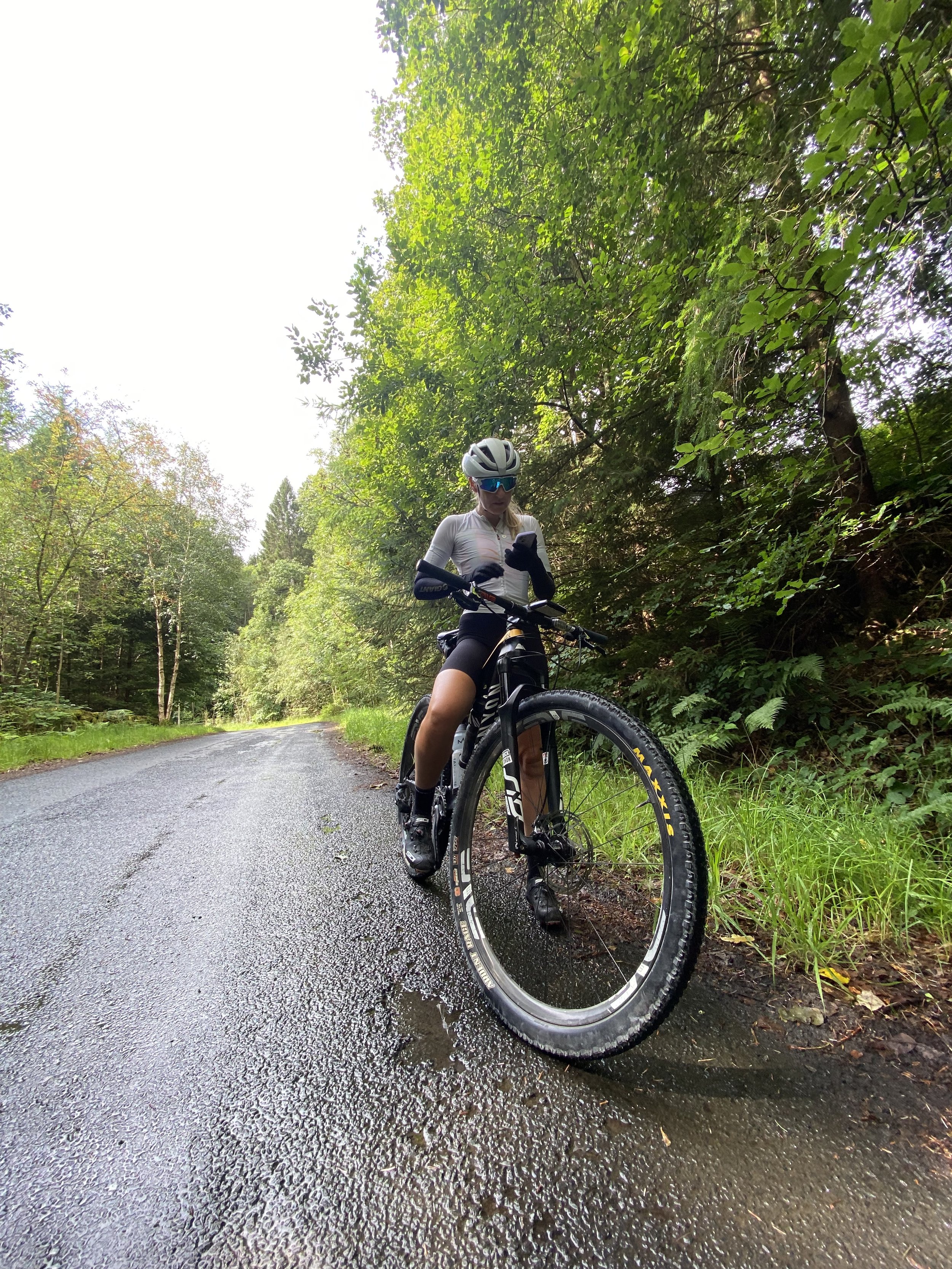


Through bespoke nutrition and cycling coaching DEEKA works with you to elevate your performance on and off the bike. We believe that personalised coaching should not just be reserved for the elite.
Every athlete deserves the opportunity to chase their dreams, and we are dedicated to helping them achieve success.
Coaching Services
All of our training packages are bespoke to an athletes specific physiology. We take a biochemical approach, training the different energy systems required to perform, and periodise training in a proven way to maximise growth. This structure, coupled with a focus on mindset helps athletes reach and surpass their goals.
Nutrition Services
We provide scientifically informed and personalised nutritional interventions that; maximise performance, promote training adaptations, and aid recovery. This is achieved whilst maintaining health and well being at all times.
Training blog
Part 3 of the DEEKA Community 2025 Reflections. This time we ask athletes which part of their riding improved the most this year.
Part 2 of the DEEKA Community Reflections series. This week we dive into the topic “resilience” and a selection of athletes share the moments which caused them to dig a little deeper, and push through in order to reach new levels!
Part 1 of our 2025 Reflections series, where we ask some of the DEEKA community to look back on the season, and pick out a few key moments of growth, resilience and good times!
Post- ride recovery; everyone knows it’s a great idea, but here’s why. This blog dives into the biochemistry behind why a post-training meal is crucial to progression.
At 50, Caroline Willis bought her first road bike.
At 61, she lined up alongside the world’s best gravel riders.
What happened in between? Ten years of showing up — in the rain, the cold, and the doubt.
No excuses. No shortcuts. Just a quiet belief that she could keep getting better.
From horse eventing to world championships, Caroline’s journey proves that growth doesn’t stop with age — it starts when you stay open, curious, and brave enough to try.
A blog which looks at 2 of the most underrated traits of great athletes: problem solving and adaptability. Read how Sophie and James, the founders of DEEKA use these skills every day, not only as athletes but as coaches. And why they believe that being a current athlete only makes them more skilled as coaches.
A full-length interview with DEEKA athlete Andie Fasen on her “training journey” through pregnancy. Her story is nothing short of inspirational, and this interview contains several pieces of advice, from nutrition to mindset. Read how she navigated some of the more obvious challenges (cycling with a huge bump), and how she celebrated success along the way with life-time best power numbers!!!
A cyclists guide to altitude training. With so much information available, it’s hard to digest what is relevant, which metrics need monitoring, and how aspects such as sleep and nutrition are effected. This siple guide provides a snapshot into how you can get the most from your time spent at altitude.
What exactly are phytonutrients, and why should we be eating more of them? This blogs dives into all things fruit and vegetables, and shares some pretty shocking research into just how powerful our 5 a day can actually be!
The importance of sleep! We all know we should get more of it, but why? This blog explores the health and performance benefits from good sleep hygiene, and some tips on how to get better sleep.
A process I have developed which helps me achieve my goals for the upcoming year by; reflecting on the previous year, “checking-in” on my current physical and mental state, and refining my plan for the next phase of training.
Here we explore the nutritional strategies that can help reduce the likelihood of falling ill, and how nutrition can reduce the time it takes to recover.
Despite the abundance of opinions about strength training off the bike, the latest science and research shows that it’s imperative to include dedicated strength sessions to your weekly training schedule. Here are he main reasons why.
Exploring how alcohol can affect recovery. More common in team sports than individual, having a glass of wine or beer after sport is definitely having a detrimental affect on recovery, and therefore performance. In this blog we look at the reasons why.
Aerobic training. This blog delves into the science behind aerobic training, and why it is so important in the pursuit of endurance success. Why it’s not always the sexy option, but why it should definitely not be ignored!
Timing your iron intake for optimal performance. This blog looks at the importance of iron for an athletes performance and well being, the differences between heme and on-heme iron, and how exercise can effect absorption.
What is FatMax? This blog looks at what this term actually means, how it’s calculated, and how it can be used to shape an athletes training.
The causes of muscle cramps. A blog which explores the “mystery” of cramps, and the several risk factors which can contribute to experiencing them.
Protein requirements for Masters athletes. This blog looks at how daily and post exercise protein requirements change with age.
Practical tips for long endurance rides. In this blog we look at the reasons why incorporating a long ride into your training is beneficial (without getting too detailed!). We also provide some tips on how to make the most of these rides.
Best nutrition strategies to help with rapid, acute recovery. This blog first looks at what is considered “good recovery”, and then details the nutrition interventions which can assist this.
How separating data and emotion can help you “feel” better. This blog looks at how an over-reliance on data can lead to a detachment to emotion. We explore some practical tips on how to become more in-tune with your emotions, and how this will help to reach your potential.
Mountain bike World Championships selection! A short blog by Sophie on her journey to GB selection!
Fuelling performance through a “food first” approach, explores why a balanced diet should form the foundation to any athletes nutrition. We look at the allure of supplements, the potential pitfalls of relying on them, and how we should not ignore nourishing, fresh food to achieve athletic success.
Training muscular endurance through low cadence intervals. This blog explores why longer intervals at low cadence are beneficial, and should be incorporated into any cyclists training.
Understanding what determines the quality of protein, and the types of foods which are deemed “high quality”. This blog also looks at why a high quality protein is important to stimulate muscle protein synthesis, and how this can help an athlete achieve their potential.
The power of bespoke training. A blog looking at why personalised training plans are so important. Referencing not only the differences between individuals, but how bespoke plans can improve the coach-athlete relationship and help an athlete reach their potential.
What causes leaky gut, and how does it impact performance. A blog which explores the factors which contribute towards this unfortunate condition, and more importantly looks at a number of tips which athletes can implement to combat “leaky gut” and prevent it happening again.
The importance of recovery rides. This blog explores that although data is a valuable tool in progression, it can sometimes detract from recovery, and the joy of the sport. Learn the importance of recovery rides, and how to execute the “perfect” rest day experience!

































